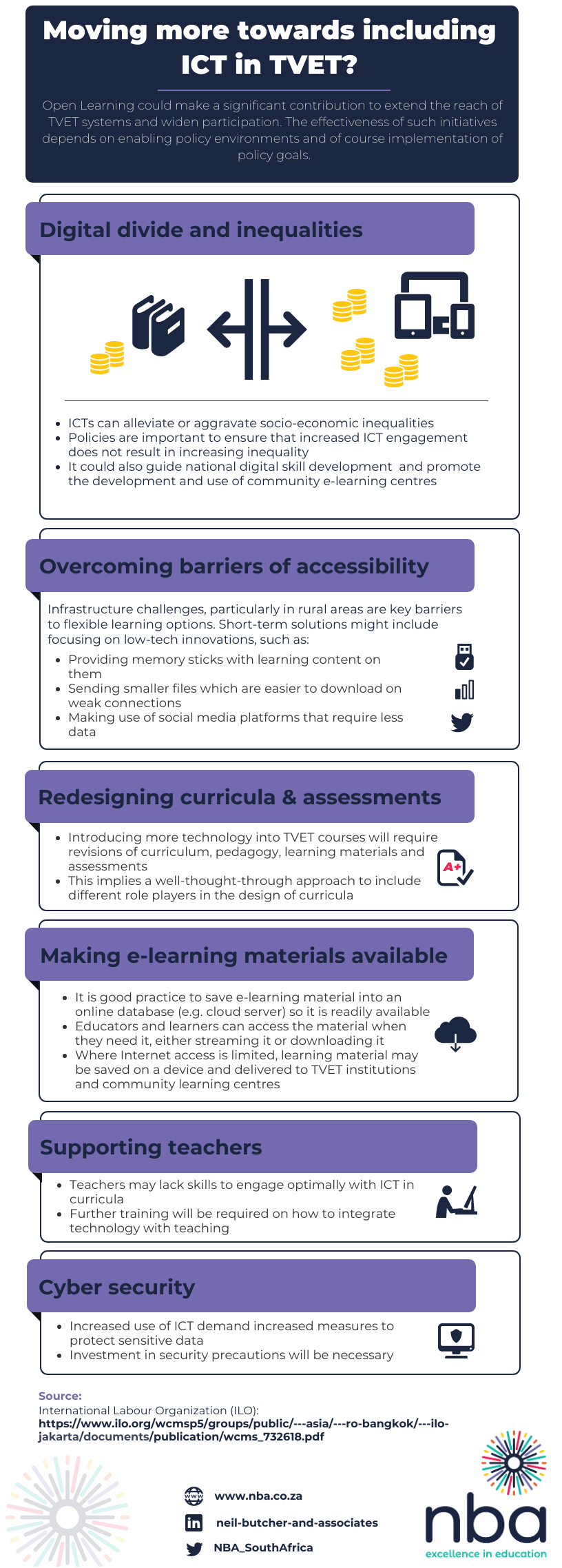This is the second post in our Digitising TVET series.
In its most simplified form, Open Learning refers to ways to make education more accessible to all. This could take form through open educational resources (such as UNESCO UNEVOC’s list of open educational resources or Croatia’s TVET content sharing platform), open courses (such as Massive Open Online Courses or MOOCs), or even open pedagogies (e.g. increasing the use of assignments beyond the confines of the classroom). In essence, it embraces more flexible and less costly learning paths, as well as increased collaboration between role players.
South Africa has adopted an Open Learning strategy, aimed at extending the reach of the TVET system to include more students who
- have acquired a significant amount of knowledge of the trade through past work experiences but do not have any formal qualification.
- attend TVET colleges and enter apprenticeships. These students will have access to the programmes either as supplementary sources of instruction and practice or as a partial or whole replacement for campus-based instruction.
- could benefit from acquiring very specific sets of skills without the need to enrol for the full qualification.
NBA is supporting the Department of Higher Education and Training by managing the development of curriculum content and open learning materials for the Occupational Certificate: Electrician Programme (OCEP), which is the first programme to be developed and delivered through the National Open Learning System (NOLS).
Internationally, UNESCO UNEVOC shares a range of publications on the implications of introducing more ICT into TVET systems, including case studies of how countries are moving towards more Open Learning TVET systems. This includes guides on digital credentialing, discussions on the potential of technologies such as Artificial Intelligence for TVET institutions, and a competency framework for teachers. They further provide peer response resources to help TVET institutions adapt to the demands COVID-19 brings.
The COVID-19 pandemic has also intensified the need to build more resilient TVET systems. This would imply investing more aggressively in flexible learning pathways, such as Open Learning. The OECD recommends capitalising on the demand for digital course and qualification offerings by exploring options for innovative, digital pedagogical approaches such as simulators, augmented/virtual reality, or artificial intelligence. Further, TVET systems should focus on building infrastructure, and revisiting policies and regulations to support the awarding of non-formal qualifications, such as micro-credentials and digital badges.

Source: ILO https://www.ilo.org/wcmsp5/groups/public/---asia/---ro-bangkok/---ilo-jakarta/documents/publication/wcms_732618.pdf

